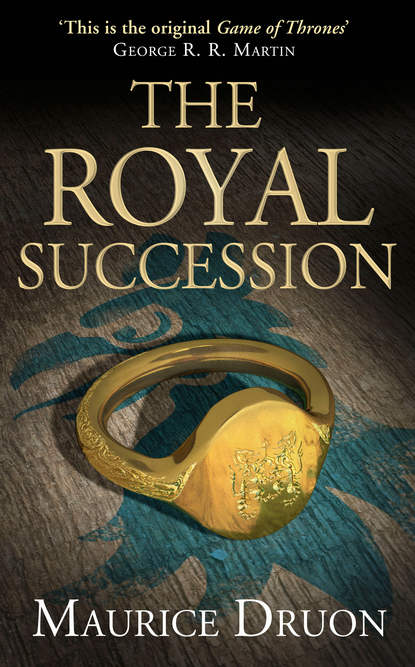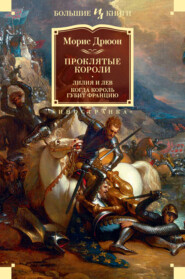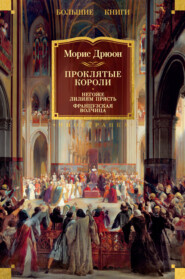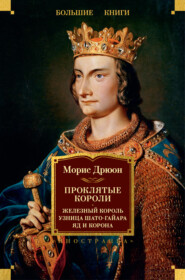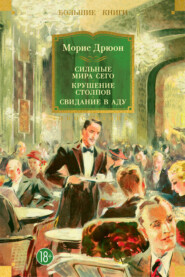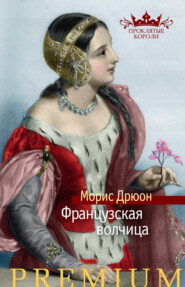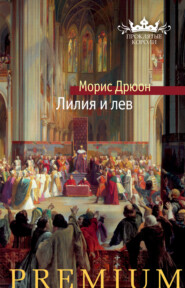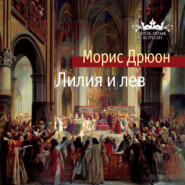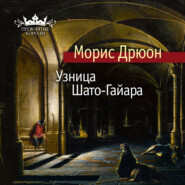По всем вопросам обращайтесь на: info@litportal.ru
(©) 2003-2024.
✖
The Royal Succession
Автор
Год написания книги
2019
Настройки чтения
Размер шрифта
Высота строк
Поля
This proposition was peculiarly reassuring to someone thinking of death; it postponed the date of the supreme trial without destroying the prospect of eternal life, and was more or less in keeping with the intuition, common to the greater part of men, that death is a falling into a dark and immense silence, into an indefinite unconsciousness.
Clearly such a doctrine, if it were to be openly professed, could not fail to arouse violent attack both among the doctors of the Church and among the pious populace, and the moment was ill-chosen for a candidate to the Holy See to preach the inexistence of both Heaven and Hell, or their emptiness.
‘We shall have to await the end of the Conclave,’ the Cardinal thought. He was interrupted by a monk in attendance who knocked on his door and announced the arrival of a courier from Paris.
‘Whom does he come from?’ asked the Cardinal.
Duèze had a smothered, strangled, utterly toneless voice, though it was perfectly distinct.
‘From the Count de Bouville,’ replied the monk. ‘He must have ridden fast, for he looks very tired; when I went to open to him, I found him half-asleep, his forehead against the door.’
‘Bring him to me at once.’
And the Cardinal, who had been meditating a few minutes before on the vanity of the ambitions of this world, immediately thought: ‘Can it be on the subject of the election? Is the Court of France openly supporting my candidature? Is someone going to offer me a bargain?’
He felt excited, full of hope and curiosity; he walked up and down the room with little, rapid steps. Duèze was no taller than a boy of fifteen, and had a mouse-like face beneath thick white eyebrows and fragile bones.
Beyond the windows the sky was beginning to turn pink; it was already dawn but not yet light enough to snuff the candles. His bad hour was over.
The courier entered; at first glance, the Cardinal knew that this was no usual courier. In the first place, a professional would immediately have gone down on his knee and handed over his message-box, instead of remaining on his feet, bowing and saying, ‘Monseigneur …’ Besides, the Court of France sent its messages by strong, solidly built horsemen, well inured to hardship, such as big Robin-Cuisse-Maria, who often made the journey between Paris and Avignon, and not a stripling with a pointed nose, who seemed hardly able to keep his eyes open and reeled in his boots from fatigue.
‘It looks very like a disguise,’ Duèze thought. ‘And what’s more, I’ve seen that face somewhere before.’
He broke the seals of the letter with his thin short hands and was at once disappointed. It did not concern the election. It was merely a plea for protection for the messenger. Nevertheless, he saw a favourable sign in this; when Paris desired some service from the ecclesiastical authorities, they now looked to him.
‘Allora, lei è il signore Guccio Baglioni?’
he said, when he had finished reading.
The young man started to hear himself addressed in Italian.
‘Si, Monsignore.’
‘The Count de Bouville recommends you to me that I may take you under my protection and conceal you from the enemies who are searching for you.’
‘If you will do me that favour, Monseigneur.’
‘It appears that you have had an unfortunate adventure which has compelled you to fly in that livery,’ went on the Cardinal in his rapid, toneless voice. ‘Tell me about it. Bouville says that you formed part of his escort when he brought Queen Clémence to France. Indeed, I remember now. I saw you with him. And you are the nephew of Messire Tolomei, the Captain-General of the Lombards of Paris. Excellent, excellent! Tell me your troubles.’
He had sat down and was toying mechanically with a revolving reading-desk on which were a number of the books he used in his work. He now felt calm and relaxed, ready to distract his mind with other people’s little problems.
Guccio Baglioni had ridden three hundred miles in less than four days. He could no longer feel his limbs; there was a thick fog in his head and he would have given anything in the world to stretch himself out on the floor and sleep and sleep.
He managed to master himself; his safety, his love and his future all made it necessary that he should control his fatigue for a little longer.
‘Well, Monseigneur, I married a daughter of the nobility,’ he replied.
It seemed to him that these words had issued from another’s lips. They were not those he would have wished to utter. He would have liked to explain to the Cardinal that an unparalleled disaster had overtaken him, that he was the most crushed and harrowed of men, that his life was threatened, that he had been separated, perhaps for ever, from the one woman without whom he could not live, that this woman was to be shut up in a convent, that events had befallen them during the last two weeks with such sudden violence that time seemed to have lost its normal dimensions, and that he felt he was hardly still living in the world he knew. And yet his whole tragedy, when it had to be put into words, was reduced to the single phrase: ‘Monseigneur, I married a daughter of the nobility.’
‘Indeed,’ said the Cardinal, ‘and what is her name?’
‘Marie de Cressay.’
‘Oh, Cressay; I don’t know it.’
‘But I had to marry her secretly, Monseigneur; her family were opposed to it.’
‘Because you’re a Lombard? Naturally; they’re still rather old-fashioned in France. In Italy, of course … So you wish to obtain an annulment? Well … if the marriage was secret …’
‘No, Monseigneur, I love her and she loves me,’ said Guccio. ‘But her family has discovered that she is with child, and her brothers have pursued me to try and kill me.’
‘They may do so, they have a customary right to do so. You have put yourself in the position of a ravisher. Who married you?’
‘Father Vicenzo.’
‘Fra Vicenzo? I don’t know him.’
‘The worst of it is, Monseigneur, that the priest is dead. So I can never prove that we are really married. But don’t think I’m a coward, Monseigneur; I wanted to fight. But my uncle went and asked the advice of Messire de Bouville …’
‘… who wisely advised you to go away for a time.’
‘But Marie is going to be shut up in a convent! Do you think, Monseigneur, that you will be able to get her out? Do you think I shall ever see her again?’
‘One thing at a time, my dear son,’ replied the Cardinal, still revolving his reading-desk. ‘A convent? What better place could she be in at the moment? You must trust in God’s infinite mercy, of which we all stand in such great need.’
Guccio lowered his head with an exhausted air. His black hair was covered with dust.
‘Has your uncle good commercial relations with the Bardi?’ went on the Cardinal.
‘Indeed yes, Monseigneur. The Bardi are your bankers, I believe,’ replied Guccio with automatic politeness.
‘Yes, they are my bankers. But I find them less easy to deal with these days than they were in the past. They’ve become such an enormous concern! They have branches everywhere. And they have to refer to Florence for the smallest demand. They’re as slow as an Ecclesiastical Court. Has your uncle many prelates among his customers?’
Guccio’s cares were far removed from the bank. The fog was growing thicker in his head; his eyelids were burning.
‘We have mostly the great barons,’ he said, ‘the Count of Valois, the Count of Artois. We should be greatly honoured, Monseigneur …’
‘We’ll talk of that later. For the moment you’re in the shelter of this monastery. You will pass for a man in my employ; perhaps we’ll make you wear a clerk’s robe. I’ll talk to my chaplain about it. You can take off that livery and go and sleep in peace; that appears to be what you need the most.’
Guccio bowed, muttered a few words of gratitude and went to the door. Then, coming to a halt, he said: ‘I can’t undress yet, Monseigneur; I’ve got another message to deliver.’
‘To whom?’ asked Duèze somewhat suspiciously.
‘To the Count of Poitiers.’
‘Give me the letter; I’ll send it later by one of the brothers.’
‘But, Monseigneur, Messire de Bouville was very insistent …’





